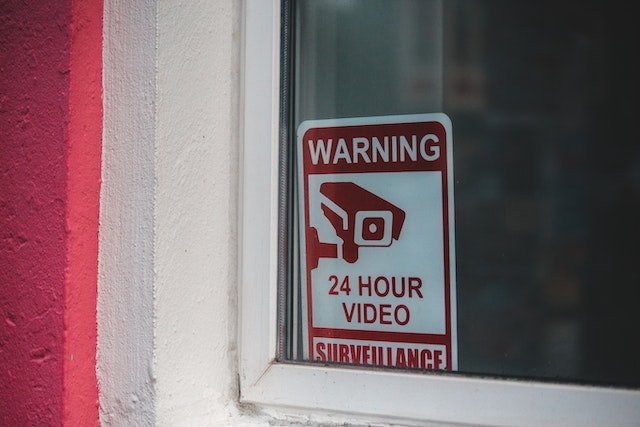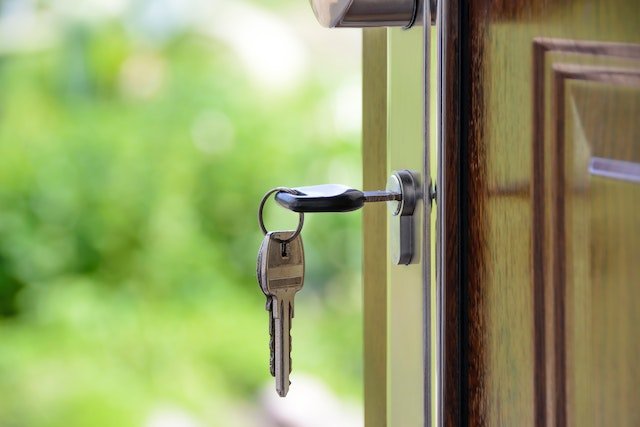Tip #1: Assessing Home Vulnerabilities
As a landlord, thoroughly assessing your rental property's vulnerabilities is the first step in ensuring its safety and security. By identifying potential weak points, you can take proactive measures to minimize risks and protect your tenants and investment. Here are some essential considerations when assessing the vulnerabilities of your rental property:Evaluate Entry Points
Start by examining all entry points to your property, including doors, windows, and any additional access points. Check for signs of wear and tear, damaged locks, or insufficient lighting. Consider the quality and condition of the existing locks and the durability of the doors and windows. Consider changing locks after a tenant is evicted or has moved out.Security Check
Assess the effectiveness of your property's security features, such as alarm systems, surveillance cameras, or intercom systems. Ensure that these systems are in good working order and are regularly maintained. If necessary, consider investing in modern security technology that offers enhanced protection.
Lighting and Landscaping
Adequate lighting is crucial for deterring potential criminals. Evaluate the lighting around your rental property, both inside and outside. Install motion-sensor lights in strategic areas, such as entryways, walkways, and parking areas. Additionally, trim overgrown vegetation and maintain the landscaping to eliminate potential hiding spots for burglars.Neighborhood Safety
Take into account the safety of the neighborhood surrounding your rental property. Research local crime statistics and trends to gain insights into the area's security risks. This information can help determine if additional security measures, such as neighborhood watch programs, are necessary.Regular Inspections
Implement a regular inspection routine to promptly identify and address any emerging security concerns. Schedule periodic maintenance checks for doors, windows, locks, and security systems. Promptly address any issues or vulnerabilities discovered during these inspections to ensure the ongoing security of your property. On top of this, make sure to regularly maintain your rental property to limit the need for costly repairs.Tip #2: Strengthening Physical Security
Ensuring the physical security of your rental property is crucial to protect both your tenants and your investment. Upgrade locks and deadbolts on all entry doors to deter unauthorized access. Consider installing security doors or reinforcing existing ones for added strength. Reinforce windows with security film or install window locks to prevent break-ins. Additionally, installing a security system with surveillance cameras and alarms provides an effective deterrent. Regularly inspect and maintain these security features to ensure they remain in optimal working condition.
Additionally, installing a security system with surveillance cameras and alarms provides an effective deterrent. Regularly inspect and maintain these security features to ensure they remain in optimal working condition.
Tip #3: Securing Outdoor Spaces
Don't overlook the importance of securing outdoor spaces to maintain a safe rental property. To deter potential intruders, install motion-activated lighting around the perimeter, particularly near entrances and parking areas. Secure the property with a sturdy fence to control access and discourage trespassing. Additionally, mark property boundaries with signage to prevent unauthorized individuals from entering.Tip #4: Establishing a Home Security Routine
Developing a home security routine is essential for both you as a landlord and your tenants. Encourage tenants to consistently lock all doors and windows when leaving the property unoccupied. Emphasize the importance of promptly reporting any suspicious activities or maintenance issues related to security. Additionally, suggest the use of timers for lights and electronics to create the appearance of occupancy when tenants are away. Foster open communication with your tenants regarding security concerns and provide information about local neighborhood watch programs.Tip #5: Enhancing Digital Security
In today's digital age, enhancing cybersecurity is crucial to protect sensitive information and maintain the integrity of your rental property. Secure your Wi-Fi network with a strong password and encryption to prevent unauthorized access. Install reliable antivirus and firewall software on all devices to safeguard against malware and cyber threats. Before renting out your home, educate tenants about safe internet practices, such as avoiding suspicious links and sharing securely. Encourage them to use unique and strong passwords for their accounts.
Before renting out your home, educate tenants about safe internet practices, such as avoiding suspicious links and sharing securely. Encourage them to use unique and strong passwords for their accounts.
Tip #6: Home Automation for Security
Utilizing home automation technology can greatly enhance the security of your rental property. Install smart devices such as smart locks, thermostats, and lighting systems. With these devices, you and your tenants can remotely monitor and control various aspects of the property, creating the illusion of occupancy even when no one is home. Integrate surveillance cameras and video doorbells that provide real-time alerts and allow tenants to see and communicate with visitors from their smartphones. Home automation adds convenience and enhances security by offering advanced monitoring and control capabilities.Tip #7: Safeguarding Valuables and Personal Information
As a landlord, it's important to guide your tenants on safeguarding their valuables and personal information within the rental property. Encourage them to use safes or lockboxes to secure important documents, jewelry, and other valuable possessions. To prevent identity theft, advise tenants to shred sensitive documents before disposing of them. Additionally, recommend keeping an inventory of valuable items and their serial numbers. Educating your tenants about these practices, you help them protect their belongings and reduce the risk of theft or unauthorized access to personal information, fostering a sense of security and trust within your rental property.

